Monads
A monad is a software design pattern with a structure that combines program fragments (functions) and wraps their return values in a type with additional computation. [...], monads define two operators: one to wrap a value in the monad type, and another to compose together functions that output values of the monad type (these are known as monadic functions).
General-purpose languages use monads to reduce boilerplate code needed for common operations (such as dealing with undefined values or fallible functions, or encapsulating bookkeeping code).
Functional languages use monads to turn complicated sequences of functions into succinct pipelines that abstract away control flow, and side-effects.
Why?
Often code contains lie due to bad encapsulation and lack of transparency
Let's take examples in C#:
public static Seq<Person> Filter(
this Seq<Person> persons,
Func<Person, bool> predicate)
=> persons.IsEmpty
? throw new ArgumentException("Can not filter an empty collection")
: persons.Filter(predicate);
If you take a look at the public API level this method has a signature like Seq<Person> -> Func<Person, bool> -> Seq<Person>
class CreatePersonUseCase
{
public CreatePersonResponse Handle(CreatePersonCommand command)
{
if (string.IsNullOrWhiteSpace(command.FirstName))
{
throw new ArgumentException("First Name can not be empty");
}
if (string.IsNullOrWhiteSpace(command.LastName))
{
throw new ArgumentException("Last Name can not be empty");
}
return new CreatePersonResponse();
}
}
This one has the signature CreatePersonCommand -> CreatePersonResponse
Both of them are lying to their callers. They can throw exceptions and are not explicit on it.
Sometimes it can fail but this failure is not visible from the outside.
To fix this kind issue we have a couple of options:
- Constrain the inputs (with only valid inputs)
- Extend the output to represent the possible failure by using a monadic container
Problems
- How may I write more expressive code?
- How may I avoid a lot of null checking that ruins code readability?
- How may I avoid
NullPointerExceptionin my applications?
How to
Context
To easily understand monads graphics can really help.
Here are the essential but if you want to go deeper we really encourage you to read the full article available in this article resources.
Code demonstrated here is in C# using the great library language-ext and scala (monads are in the language itself)
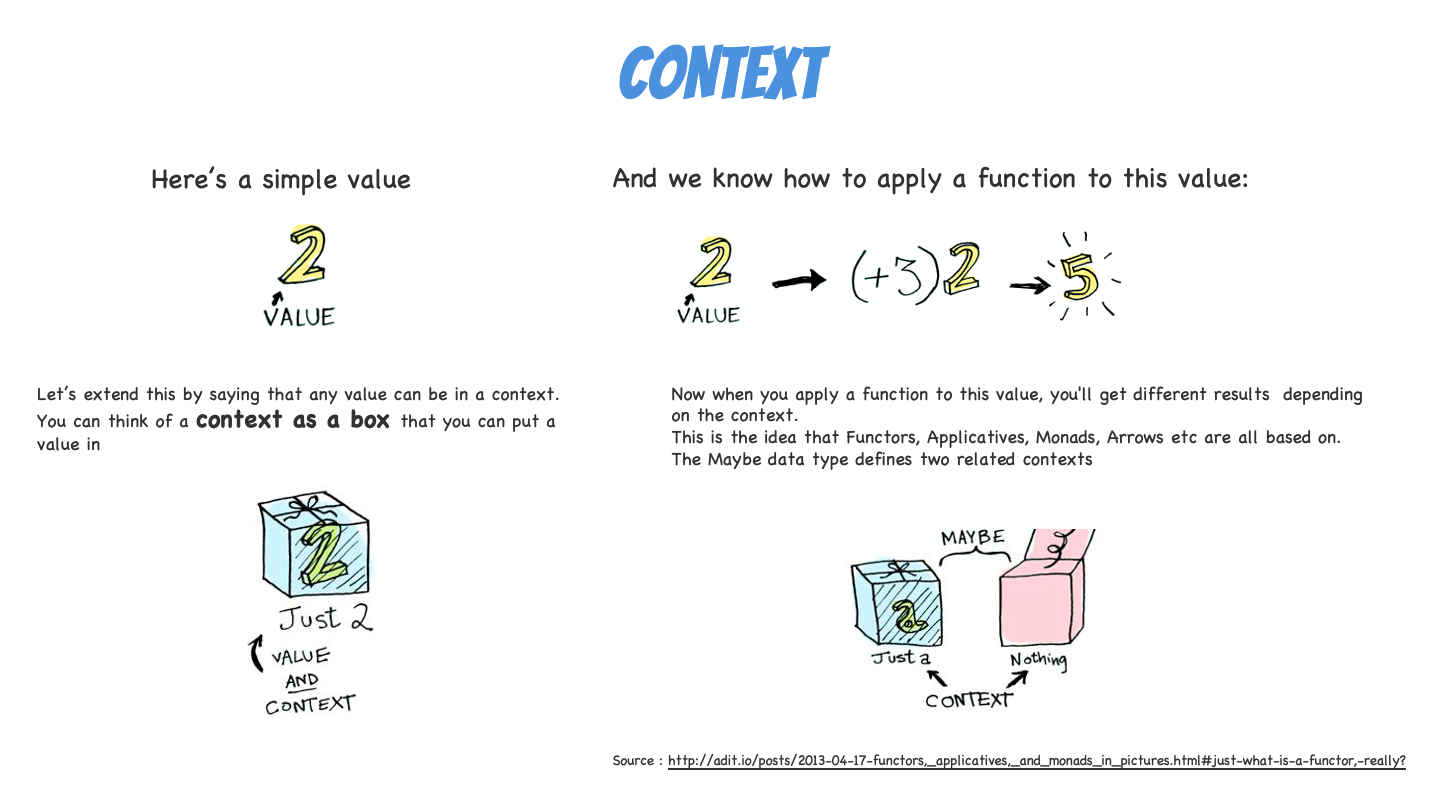
Functors
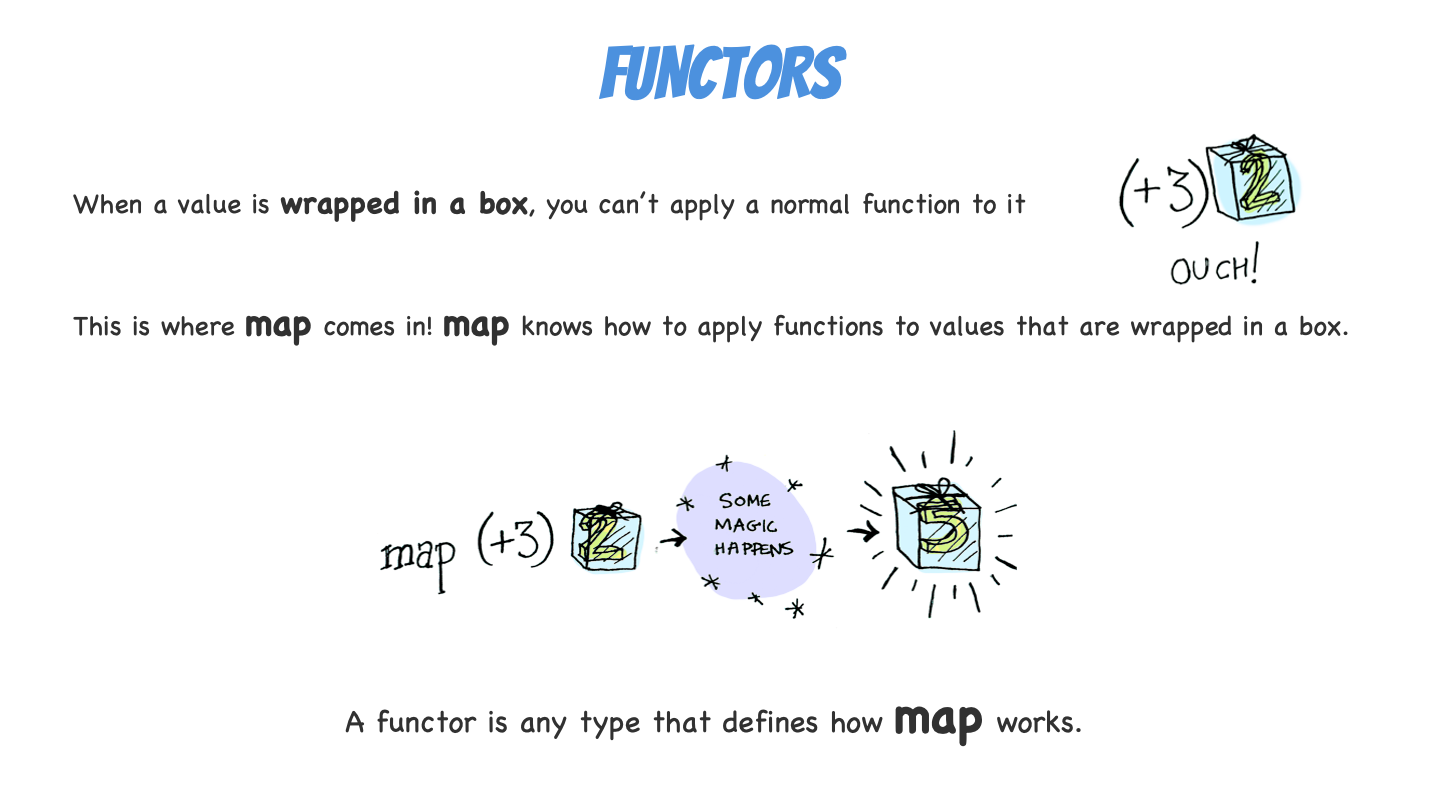
In C#:
Some(2).Map(x => x + 3); // Some(5)
Option<int>.None.Map(x => x + 3); // None
In scala:
Some(2).map(x => x + 3) // Some(5)
None.asInstanceOf[Option[Int]].map(x => x + 3) // None
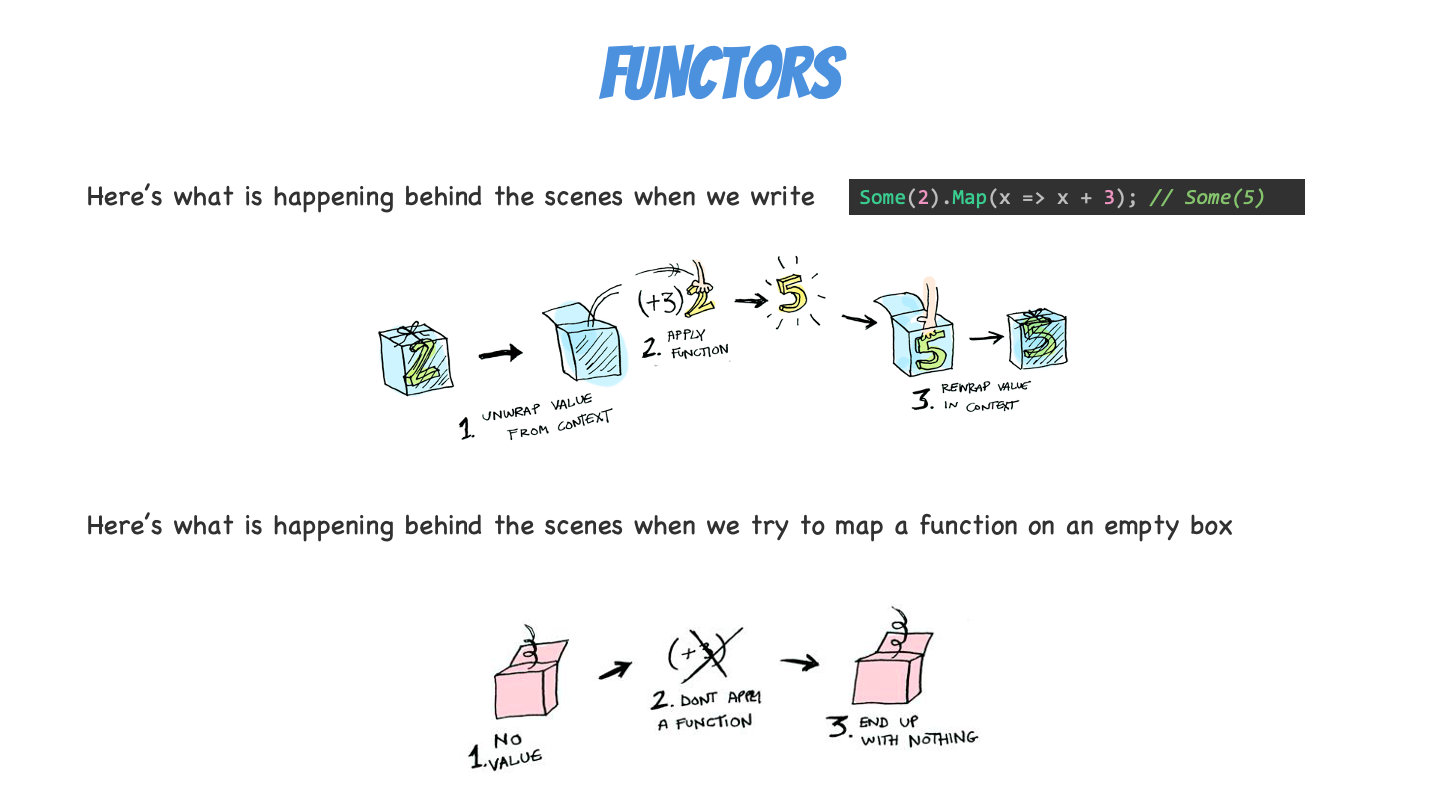
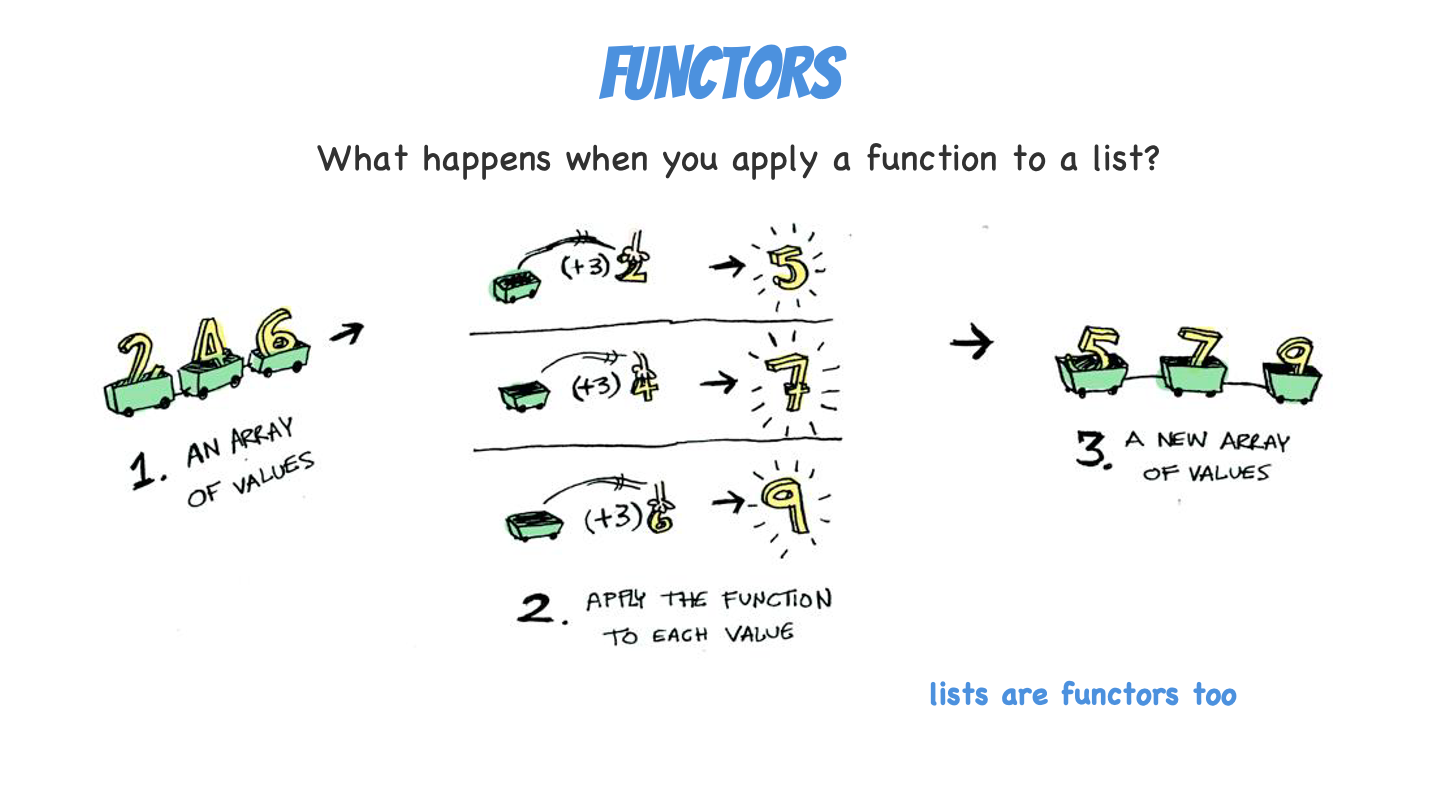
In C#:
List(2, 4, 6).Map(x => x + 3); // 5, 7, 9
In scala:
List(2, 4, 6).map(x => x + 3) // 5, 7, 9
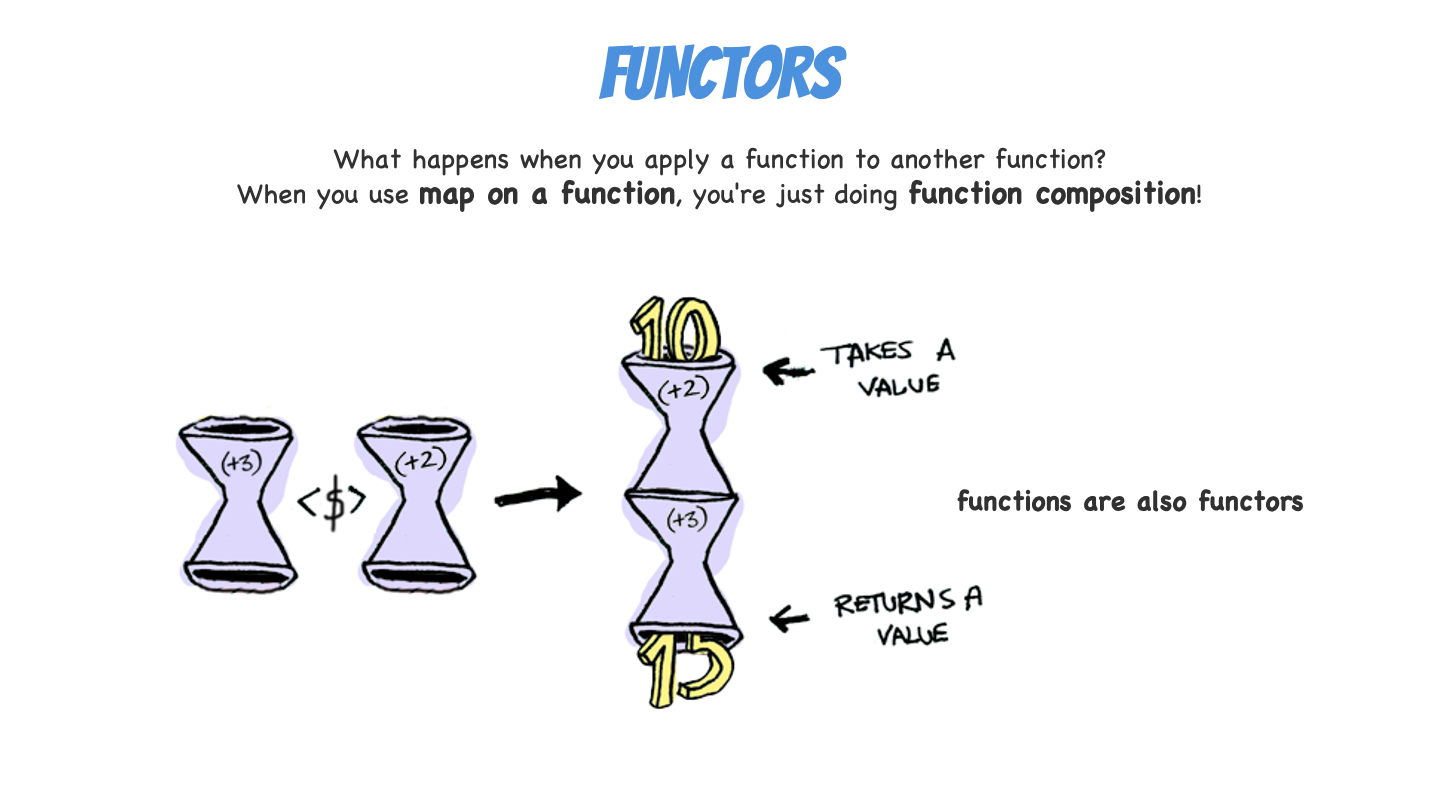
In C#:
Func<int, int> add2 = x => x + 2;
Func<int, int> add3 = x => x + 3;
Func<int, int> add5 = add2.Compose(add3);
add5(10); // 15
In scala:
val add2: Int => Int = x => x + 2
val add3: Int => Int = x => x + 3
val add5: Int => Int = add2.compose(add3)
add5(10) // 15
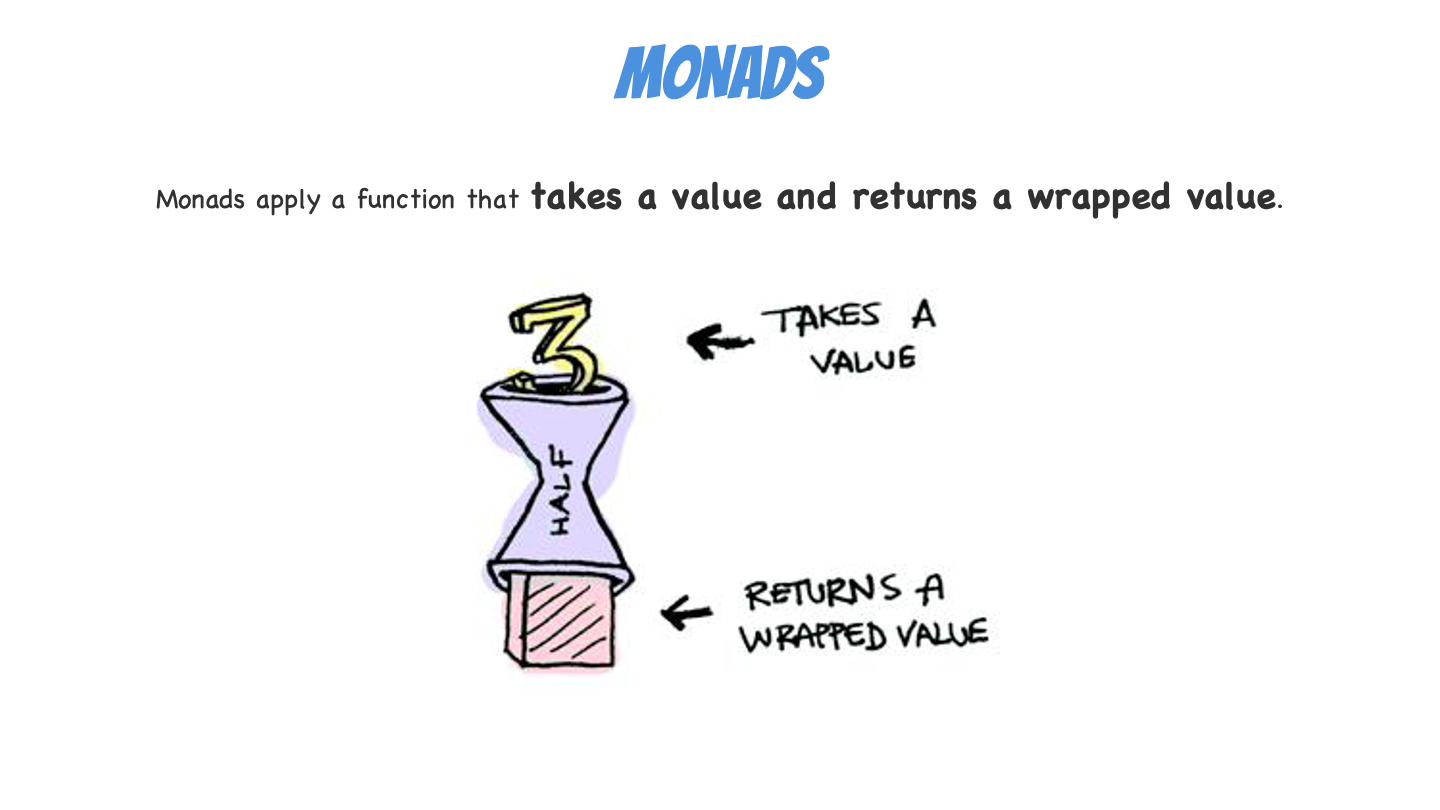
In C#:
static Option<int> Half(int x)
=> x % 2 == 0 ? Some(x / 2) : None;
In scala:
def half(x: Int): Option[Int] =
if(x % 2 == 0)
Some(x / 2)
else None
Monadic Bind
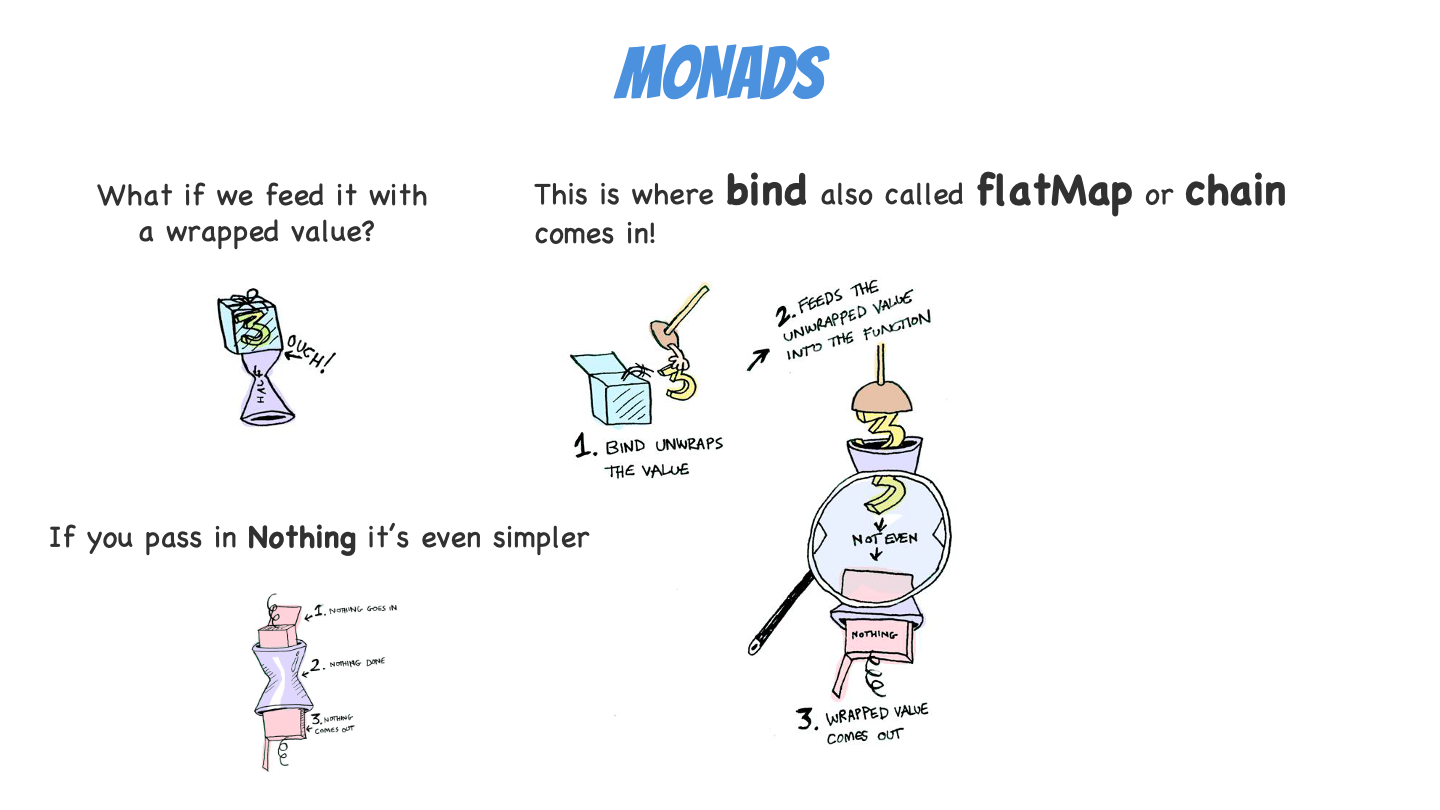
In C#:
Some(3).Bind(Half); // None
Some(4).Bind(Half); // Some(2)
In scala:
Some(3).flatMap(half) // None
Some(4).flatMap(half) // Some(2)
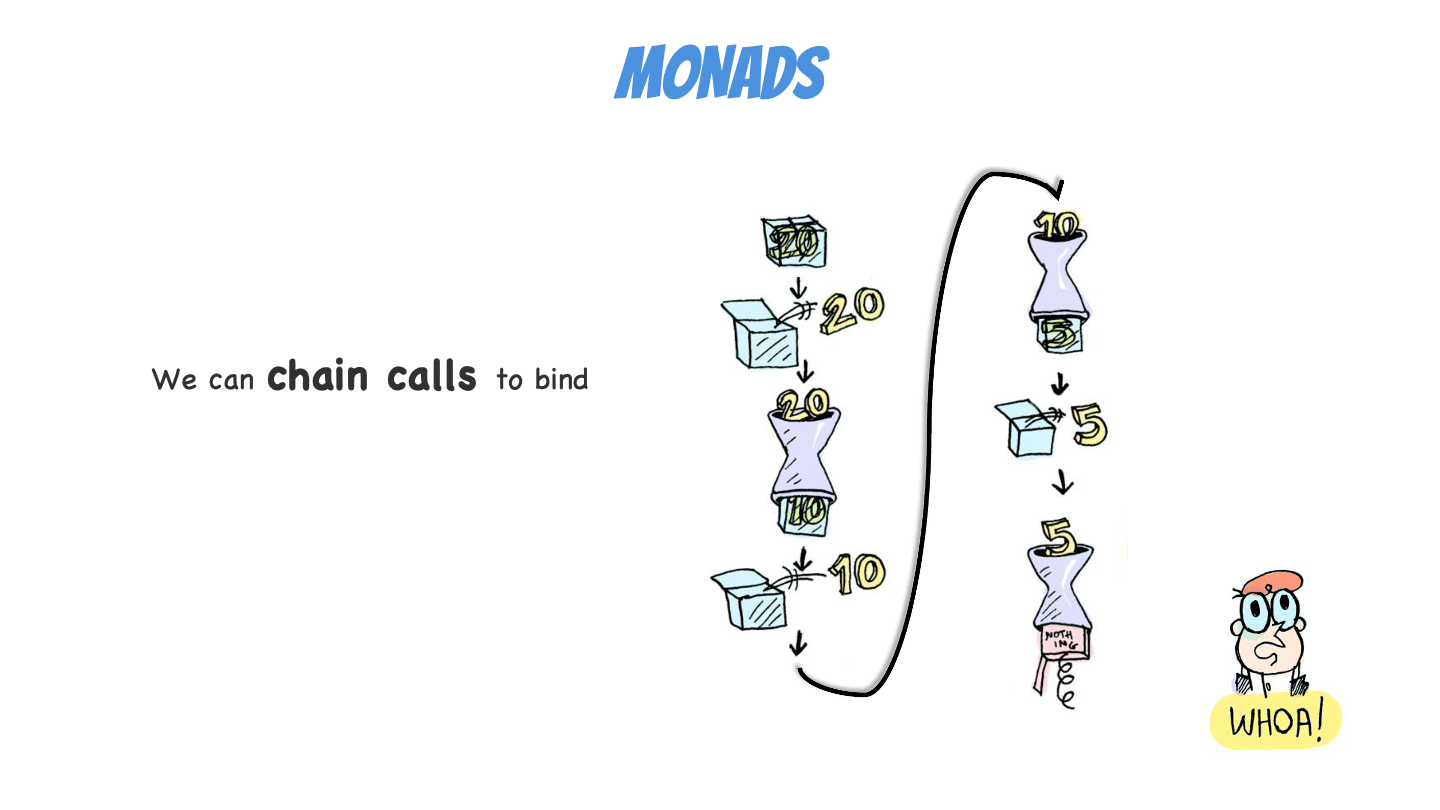
In C#:
Some(20)
.Bind(Half) // Some(10)
.Bind(Half) // Some(5)
.Bind(Half) // None
In scala:
Some(20)
.flatMap(half) // Some(10)
.flatMap(half) // Some(5)
.flatMap(half) // None
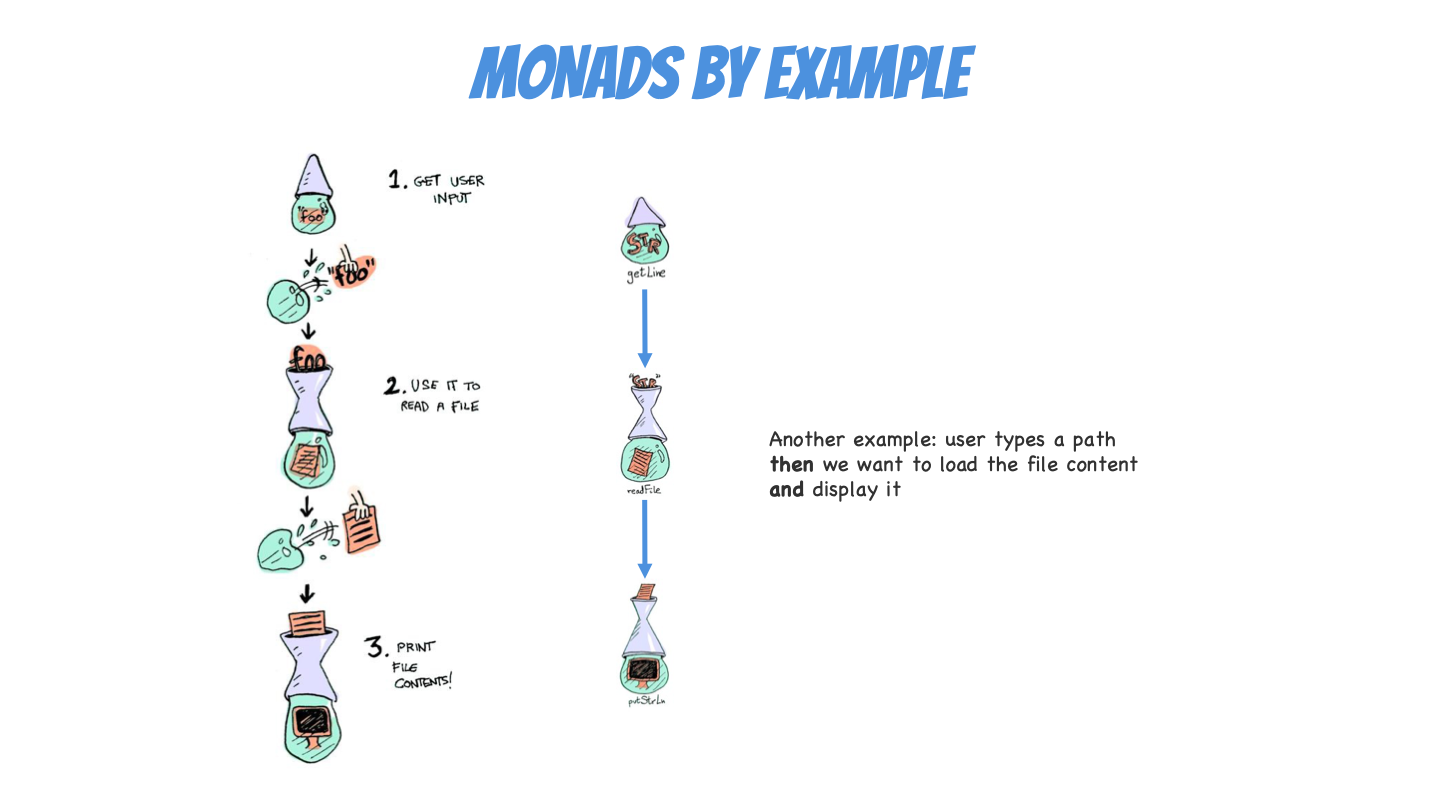
private static Try<string> GetUserInput()
{
WriteLine("File :");
return () => Try(ReadLine)!;
}
private static Try<string> ReadFile(string filePath)
=> () => File.ReadAllText(filePath);
public static void Process()
=> GetUserInput()
.Bind(ReadFile)
// Forced to handl both cases: Success and Failure
.Match(WriteLine,
ex => WriteLine($"FAILURE : {ex.StackTrace}")
);
Example
Let's refactor a small piece of code to use a monad to make the code safer and express a potential failure:
private static Person FindPerson(string fullName) =>
People
.FirstOrDefault(x => x.Named(fullName));
From the usage we could call it like this because its public api looks like this: string->Person
var pets = FindPerson("Unknown person")
.Pets
.Select(pet => pet.Name);
Here you would receive an exception if no element is found in the collection for the given fullName.

Use a Monad
Let's change it by using an Option for example, it will represent the fact that the find function may not find anything
private static Option<Person> FindPerson(string fullName) =>
People.Find(p => p.Named(fullName));
The usage is now safe (No NPE possible)
var pets = FindPerson("Unknown person")
// Called only when Something (Some) inside the Option
.Bind(person => person.Pets)
.Map(pet => pet.Name);
Constraint
Find a place in your code base where:
- You throw an
Exception - Check for
nullthen continue - any other use case for a monad
Refactor to use an existing monad.